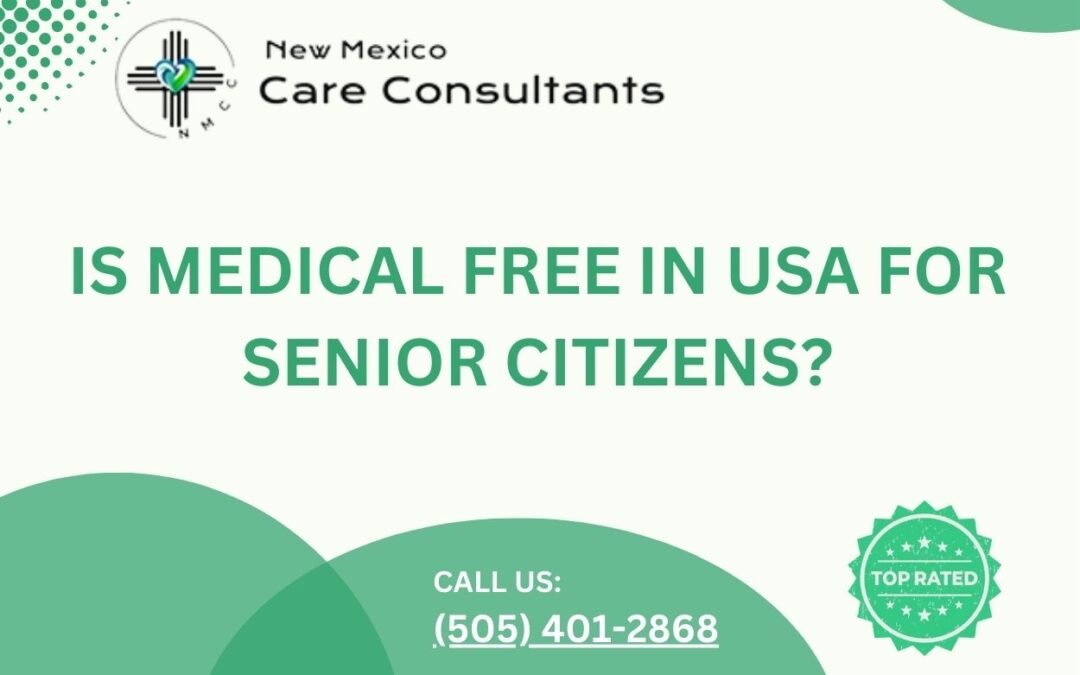In the vast landscape of American healthcare, the question of whether medical care is free for senior citizens is a poignant note in the symphony of aging. As the golden years unfold, so does the need for comprehensive healthcare. In the vibrant city of Albuquerque, where the Sandia Mountains cast a watchful eye, the realities of healthcare for senior citizens intertwine with the services provided by caregiving agencies. Let’s embark on a journey to demystify the notion of free medical care for seniors in the USA and explore the role of caregiving agencies in Albuquerque.
The Landscape of Healthcare for Senior Citizens in the USA: Contrary to the notion of free medical care, the United States operates on a model where healthcare is predominantly funded through a combination of private insurance, government programs, and out-of-pocket expenses. Senior citizens often rely on Medicare, a federal health insurance program, to cover essential medical services. While Medicare provides crucial support, it is not entirely free and may involve premiums, deductibles, and co-payments.
Understanding the Role of Medicare: Medicare serves as a beacon of support for individuals aged 65 and older in the USA. It consists of different parts, each addressing specific healthcare needs:
- Medicare Part A (Hospital Insurance):
- Covers inpatient hospital stays, skilled nursing facility care, hospice care, and some home health care.
- Most beneficiaries do not pay a premium for Part A, but there are deductibles and coinsurance.
- Medicare Part B (Medical Insurance):
- Covers outpatient care, doctor’s services, preventive services, and some home health care.
- Involves a monthly premium, annual deductible, and co-payment or coinsurance.
- Medicare Part C (Medicare Advantage):
- A private insurance plan that includes coverage from both Part A and Part B.
- May offer additional benefits but may involve extra costs.
- Medicare Part D (Prescription Drug Coverage):
- Offers prescription drug coverage through private insurance plans.
- Involves premiums, deductibles, and co-payments.
The Realities of Out-of-Pocket Expenses: While Medicare is a crucial lifeline for seniors, it is important to note that it does not cover all healthcare expenses. Out-of-pocket costs, such as co-payments, deductibles, and premiums, can accumulate. This is where caregiving agencies in Albuquerque play a significant role in providing support and assistance.
The Role of Caregiving Agencies in Albuquerque: As the healthcare landscape evolves, caregiving agencies in Albuquerque emerge as valuable allies in navigating the complexities of healthcare for senior citizens. These agencies offer a range of services that extend beyond medical care to address the holistic needs of the elderly.
- Comprehensive Care Coordination:
- Caregiving agencies in Albuquerque provide comprehensive care coordination, ensuring that seniors have access to necessary medical appointments, medications, and follow-up care.
- In-Home Health Services:
- Many seniors prefer the comfort of their homes, and caregiving agencies facilitate in-home health services. Skilled caregivers assist with daily activities, medication management, and monitoring of health conditions.
- Emotional and Social Support:
- The well-being of seniors is not solely dependent on medical care. Caregiving agencies recognize the importance of emotional and social support, offering companionship, engagement, and activities that contribute to mental and emotional health.
- Advocacy and Assistance:
- Navigating the complexities of healthcare can be overwhelming. Caregiving agencies serve as advocates, assisting seniors in understanding their insurance coverage, connecting with healthcare providers, and managing paperwork.
Conclusion: While the concept of free medical care for senior citizens in the USA remains a nuanced reality, the landscape is shaped by programs like Medicare and the invaluable support provided by caregiving agencies in places like Albuquerque. As we traverse the healthcare horizon, let us appreciate the intricate symphony of care, recognizing the role of both systemic support and compassionate caregiving in ensuring the well-being of our seniors in the golden years.

